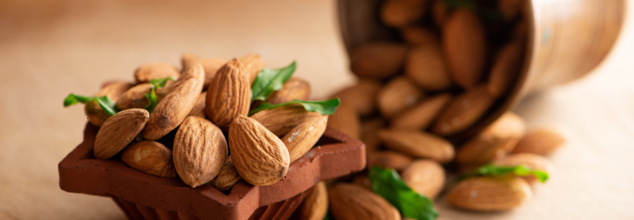
Credits: Canva
How Much Sugar Is Too Much Sugar?
Sugar is one of the most controversial ingredients in modern diets. Everyone is talking about it. How much to take? To consume it or not? How can one limit it? But sadly, it is everywhere. It is in your cereals, in your sauces and in your so called "health bars". However, it is important to understand that not all sugar is the same. The reality is different from blanket warnings. So, to make it easier for you, here is a break down of what sugar really is and how it affects your body.
What Is Sugar?
It is a carbohydrate that gives foods its sweet taste. It also exists in many forms, natural and as added ingredients.
Naturally occurring sugars include fructose which are present in fruits; lactose, which are present in dairy; maltose, which are present in sprouting grains; and glucose, which is body's go-to fuel and found in fruits, and is also created during digestion.
Whereas, added sugars are he one that comes after processing. They are called sucrose, or table sugar, high-fructose or corn syrup, honey agave nectar, maple syrup, and coconut sugar.
While your body ultimately breaks down all kinds of sugars into glucose or fructose, the source and accompanying nutrients, which could be fiber or fat may impact on how it is being absorbed in your body.
Why Too Much Sugar Could Be A Problem?
High sugar intake can lead to reduction in insulin sensitivity and also increase the risk of type 2 diabetes. It can also promote fat buildup in the liver. Sugary foods also lack fiber or protein, so you are more likely to overeat. It could also feed oral bacteria and contribute to cavities.
However, not all sugars are equally harmful.
How Much Sugar Can You Eat?
As per the World Health Organization (WHO), you must keep your sugar under 10% of your total calories. The ideal limit is 5%, which is around 6 tsp of sugar in total.
As per the American Heart Association, men can have 9 tsp of sugar, while women can have 6 tsp of sugar.
As per the US Dietary Guidelines, sugar must be kept under 10% of your daily calories, which is about 50g in a 2,000 calorie diet.
However, in reality, an average American consumes around 77g of sugar, way above the limit.
What All Has Added Sugar In It?
Added sugar isn’t just in desserts. It shows up in:
- Flavored yogurts (15–25g/serving)
- Pasta sauces (up to 12g/half-cup)
- Breakfast cereals and granola (10–15g/serving)
- Salad dressings and protein bars
To manage your intake:
- Read labels for “added sugars”
- Learn sugar’s many names (like dextrose or maltose)
- Choose whole, unprocessed foods
- Use cinnamon or fruit as natural sweeteners
What you must keep in mind is that one size does not fit all. Athletes may benefit from some quick-digesting sugars during or after exercise. Whereas children are more sensitive to sugar's effects and early eating habits. People with diabetes or metabolic conditions must also stay careful and monitor their sugar consumption.
Sugar isn’t evil—it’s context that matters. Focus on reducing added sugars, not cutting all sweet foods out. Occasional treats are fine if your overall diet is nutritious. By staying informed, you can enjoy sweetness without compromising your health.

(Credit-Canva)
Does Having A Gluten-Free Diet Mean You Have A Healthy Diet?
There are many people who avoid foods with gluten, whether it is due to allergies or they believe it is a healthier diet to follow. When weight loss diets are brought up, many people turn to gluten free diets as the holy grail of weight loss. But is a gluten-free diet always healthy? This idea often comes from things they read online or see in the media, which aren't always based on real science. However, doctors and researchers say these claims aren't supported by solid medical evidence. According to Plant Foods for Human Nutrition 2025, gluten-free products have less protein and more sugar, increasing its calories as well.
Gluten is a protein found in wheat, and only people with celiac disease, wheat allergies, or gluten sensitivity need to avoid it. For everyone else, choosing gluten-free products just because they think it's healthier might not be the best choice and may actually be less healthy.
Gluten-Free vs. Regular Products
In a study published in the Journal of Human Nutrition and Dietetics researchers compared many gluten-free foods with their regular, gluten-containing versions. They looked at things like how many calories, how much sugar, how much fiber, and how much protein were in each. They found that gluten-free products often have more sugar and calories. This means they might not be good for people trying to watch their weight. Gluten-free foods also tend to have less protein, which is important for building muscles and staying healthy. However, they did find that gluten-free foods often have more fiber, which is good for digestion. This is likely because companies add extra fiber to these products. Overall, the study showed that gluten-free foods are often made with different flours that are higher in carbs and lower in protein compared to wheat flour.
Making Informed Choices
If you have celiac disease or a wheat allergy, you must eat gluten-free. However, if you don't, you should think carefully before switching to a gluten-free diet. It's important to look at the nutrition labels and compare products. A healthy diet is about eating a variety of whole foods, like fruits, vegetables, and whole grains, not just focusing on whether something is gluten-free. If you buy packaged foods, look for products with simple ingredients and avoid those with lots of additives or sugar. Even if you want to avoid gluten, you can still eat healthy grains like quinoa or buckwheat. These grains are naturally gluten-free and provide important nutrients. Remember, it's the overall quality of your diet that matters most, not just whether you eat gluten or not.
Here are some healthy gluten free options you can try incorporate to your diet according to Mayo clinic.
Fresh fruits and vegetables
Enjoy nature's bounty! Opt for fresh produce, avoiding processed versions with hidden gluten in sauces or coatings.
Beans, seeds, legumes, and nuts
Embrace these natural powerhouses! Choose unprocessed forms for a gluten-free protein and fiber boost.
Eggs
Versatile and nutritious! Eggs are naturally gluten-free, providing essential proteins and vitamins for a balanced diet.
Lean, nonprocessed meats, fish, and poultry
Select unseasoned, lean proteins to ensure a naturally gluten-free meal option.
Most low-fat dairy products
Plain milk, yogurt, and unprocessed cheese are typically gluten-free, offering calcium and protein.

Credits: Canva
Almonds Are A Great Addition To Indian's Diet, Finds Study
A recent study published in the journal Current Developments in Nutrition found that eating almonds daily can actually keep your blood sugar levels in control. This is specifically true for the population like "Asian Indians". This was done by an international team of researchers who analysed previously published research on almonds and cardiometabolic health. They found that almonds can, in fact, help improve metabolic health by reducing 'bad' cholesterol and increasing beneficial gut bacteria.
The team also published as a consensus article which also reinforced almond's role as a heart-healthy, weight-supporting and gut-friendly food.
What Do The Experts Say?
Dr Anoop Misra, who is the chairman of Fortis Centre for Diabetes, Obesity and Cholesterol, and study author told PTI that the findings also revealed how almonds can benefit specific population. The population in concern is Asian India, where rising rates of cardiometabolic diseases are a concern.
Healthy Heart - A Key Benefit of Almond
Almonds have been found to lower LDL cholesterol—often referred to as 'bad' cholesterol—by around five units. They also lead to small but significant reductions in diastolic blood pressure, in the range of 0.17 to 1.3 mmHg. These changes, though modest, can add up over time and contribute to better cardiovascular health.
Better Blood Sugar Control
For people with pre-diabetes, especially Asian Indians, daily almond consumption can help lower fasting blood glucose and HbA1C levels. This suggests that almonds may play a role in managing or even delaying the onset of type 2 diabetes. The study pointed out that almond intake improves glycemic response in this population group without contributing to weight gain.
No, Almonds Don’t Cause Weight Gain
A common misconception is that almonds lead to weight gain due to their fat content. However, researchers found that consuming more than 50 grams of almonds per day could actually lead to a slight reduction in body weight. Dr. Anoop Misra explained that the protein, fiber, and healthy fats in almonds keep people fuller for longer, helping to manage appetite and reduce overall calorie intake.
ALSO READ: Too Many Almonds Can Lead to Kidney Stones: Here's How Many To Consume
Support for Weight Loss Efforts
When paired with a balanced diet and regular physical activity, almonds can be part of a healthy weight loss strategy. Dr. Misra noted that almonds help stabilize energy levels and minimize fluctuations in hunger, making it easier for people to stick to their nutrition plans.
A Healthy Gut Boost
Almonds also have a positive effect on gut health. They help increase the population of healthy gut bacteria and boost the production of short-chain fatty acids, which are linked to better metabolic function. According to the researchers, these gut-related benefits can indirectly help reduce excess body fat.
Far from being a guilty pleasure, almonds are a nutrient-rich food that can support heart health, blood sugar control, weight management, and even gut health. Whether you're looking to improve overall wellness or manage specific health conditions, a handful of almonds a day might just do the trick.

(Credit-Canva)
Adding This Spice To Your Diet Could Be The Best Decision For Your Heart
Any dish without spices tastes bland, especially to those who grew up in Asian and middle eastern families, who are known for their flavorful dishes. However, these are not just for taste, these spices have health benefits to them, many of which have been used in Ayurveda for a very long time. These are filled with antioxidants, John Hopkins Medicine explains that about 100 of these common spices used in cooking all around the world are concentrated sources of antioxidants.
Spices like turmeric were and still get used for medicinal uses as it reduces inflammation and discomfort.
One such spice that should be a part of your daily diet is cinnamon, and the National Health Services Doctor Amir Khan swears by it! Doctor Amir Khan shares many educational health videos, giving small tips and knowledge to people. In a recently viral video, he spoke about his favorite spice, cinnamon.
What Are The Health Benefits Of Cinnamon?
According to 2014 review done by Evidence-based Complementary and Alternative Medicine, cinnamon not only has antioxidants, but it is also anti-inflammatory, antidiabetic, antimicrobial, anti-cancer, lipid lowering, cardiovascular disease-lowering compound. This review also suggests it has properties that help fight against neurological disorders like Parkinson’s and Alzheimer’s
Antioxidant Properties
Dr. Khan explained that cinnamon is rich in plant compounds known as polyphenols. These act as protectors for our bodies, shielding our cells from damage caused by unstable molecules called free radicals. Free radicals can harm our cells over time. Additionally, cinnamon has properties that can help reduce inflammation within the body, which is linked to various health issues.
Heart Health
Regarding heart health, Dr. Khan mentioned that incorporating cinnamon into your diet might be beneficial. Several scientific studies have indicated that cinnamon could play a role in lowering levels of unhealthy fats in the bloodstream, such as LDL cholesterol, as well as reducing overall total cholesterol. By helping to manage these levels, cinnamon may contribute to maintaining a healthier cardiovascular system and a stronger heart.
Blood Sugar Control
Furthermore, Dr. Khan highlighted cinnamon's positive effects on blood sugar regulation. He explained that cinnamon appears to slow down the rate at which glucose, or sugar, is absorbed into the bloodstream after we consume food. This more gradual absorption can help prevent sharp spikes in blood sugar levels. Cinnamon may also have an action similar to insulin, the hormone that plays a crucial role in controlling blood sugar in the body.
Additional Potential Health Benefits of Cinnamon
According to Diabetes.co.uk, beyond its effects on blood sugar and heart health, cinnamon may offer other benefits, including relieving indigestion, reducing pain for arthritis sufferers, boosting the immune system, and helping to combat medication-resistant yeast infections. The platform also noted that cinnamon is a good source of essential nutrients like calcium, fiber, and iron, further contributing to its overall health value.
To easily incorporate more of this beneficial spice into your daily routine, Dr. Khan suggested adding around half a teaspoon of cinnamon to foods like milk, porridge, or even cooked meals. This simple addition can provide a boost of antioxidants and potentially contribute to improved heart health and blood sugar control.
© 2024 Bennett, Coleman & Company Limited

